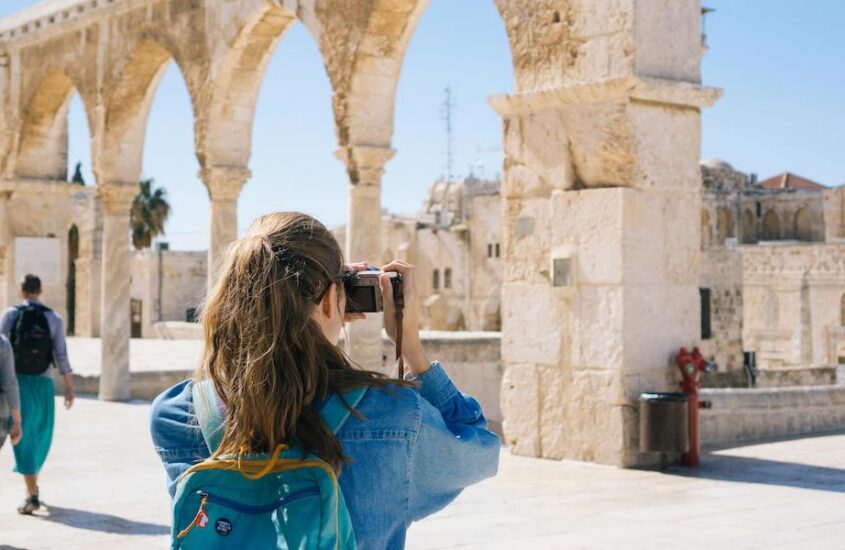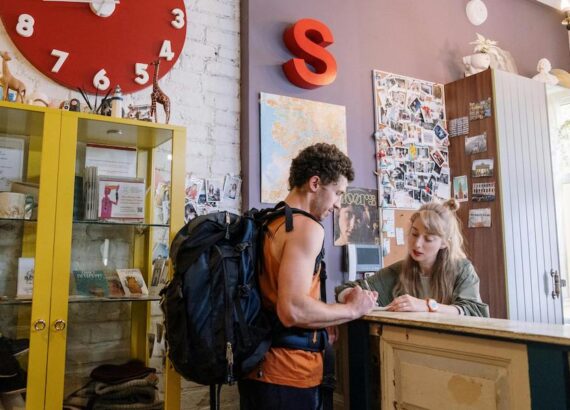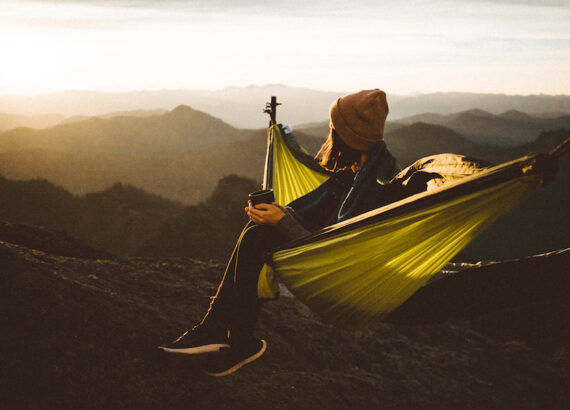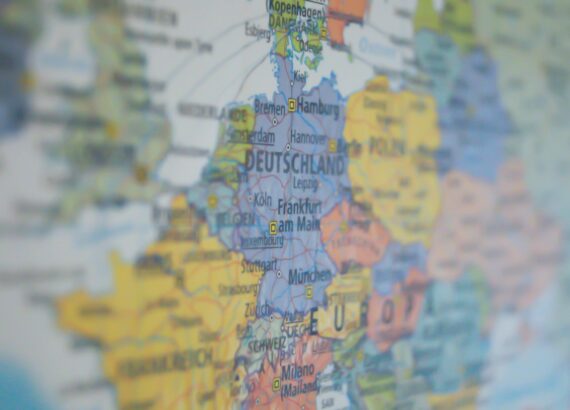How To Plan for a First Trip Abroad as an Introvert

Traveling abroad for the first time can be a thrilling experience, but for introverts, the thought might be accompanied by a tinge of anxiety. From dealing with crowds to unexpected social interactions, the challenges are real. With thoughtful preparation, you can enjoy a fulfilling journey that respects your introverted nature. The key to a successful trip lies in adapting the experience to suit your needs.
This means choosing quieter travel periods, opting for off-the-beaten-path destinations, and arranging travel itineraries that allow for ample downtime. Learning to navigate these aspects will not only minimize stress but also enhance your enjoyment, letting you discover new cultures and landscapes at a pace that feels comfortable for you.
Putting Introverted Needs First
Traveling as an introvert isn’t just about seeing new places; it’s about balancing exploration with comfort. When planning your first trip abroad, it’s important to prioritize your introverted needs to have a positive and memorable experience. This begins with choosing destinations that cater to quieter tastes and selecting the right type of accommodation where you can unwind in solitude.
By understanding and respecting your limits, you can design a travel experience that allows you to enjoy the joys of discovery while maintaining your peace of mind.
Self-awareness is Key
Recognize what aspects of travel might drain you and what will rejuvenate you. For introverts, long periods of social interaction without breaks can be exhausting. Plan for quiet times throughout your trip to recharge.
Choose Your Destination Wisely
Some places are naturally better suited for introverts. Destinations that offer peaceful environments, like natural parks or less-populated towns, might be more comfortable than bustling cities.
Accommodation Matters
Choosing where to stay is just as important as selecting your destination. For a more peaceful retreat, consider accommodations like boutique hotels, bed and breakfasts, or vacation rentals in quieter neighborhoods. These options often provide a more personalized and secluded experience, allowing you to feel at home away from the hustle and bustle.
Travel During Off-Peak Times
Traveling during off-peak seasons can significantly improve your experience. You’ll likely encounter fewer tourists, shorter lines, and a more relaxed atmosphere. Visiting museums, parks, and other attractions during less busy times of day can also help you avoid crowds, making your excursions more enjoyable and less stressful.
Planning Your Itinerary
Designing an itinerary that matches your introverted nature is critical for a fulfilling trip abroad. It’s about choosing destinations and activities that allow you to enjoy new experiences at your own pace, without feeling overwhelmed.
This involves selecting quieter, less crowded places to visit, spacing out activities for plenty of downtime, and incorporating days just for relaxation. By planning thoughtfully, you ensure that your travel experience is both enjoyable and rejuvenating, allowing you to explore the world while staying true to yourself.
Slow Travel
Instead of trying to see everything, choose a few places to explore deeply. This gives you the space to enjoy each experience without feeling rushed or overwhelmed.
Include Downtime
Schedule time to retreat and relax every day. Whether it’s reading a book in a café or walking in a quiet park, make sure there’s ample downtime.
Private Accommodations
Consider booking a private room or a whole apartment. This can be your sanctuary where you can unwind in solitude after a day of exploring.
Flexible Planning
While it’s good to have a plan, staying flexible allows you to adjust based on your energy levels each day. If you feel particularly drained, it might be a day to skip the bustling museum and opt for a quiet garden visit instead.
Minimalist Scheduling
Avoid the temptation to fill every slot in your itinerary. Having open periods in your schedule gives you the freedom to explore spontaneously or rest if you feel the need. This less structured approach can reduce travel stress significantly.
Packing Essentials
Packing for a trip as an introvert isn’t just about the right clothes—it’s about bringing along items that add to your your comfort and help you maintain your peace of mind. Choosing what to pack can influence how you experience your travels.
Include items that help you manage bustling environments, like noise-canceling headphones, and those that encourage relaxation, such as your favorite book or a travel journal. By carefully selecting essentials that cater to your introverted preferences, you can create a personal oasis, no matter where you are in the world.
Comfort Items
Bring along items that make you feel comfortable and secure, like your favorite book or a travel journal.
Noise-cancelling Headphones
These are a must for introverts. They can help you create a personal oasis amidst the chaos of public transport or crowded tourist spot.
Portable Relaxation Tools
Consider packing light, compact items like a foldable yoga mat or a travel-sized aromatherapy kit.
Adaptive Clothing
Choose clothing that is not only comfortable but also versatile. Opt for layers that can be easily adjusted to different climates and social settings. Having clothes that feel good and are functional reduces stress.
Tech Gear for Connectivity
Include tech accessories that aid in your travel logistics, like a reliable power bank, international travel adapters, and perhaps a small, secure Wi-Fi device for internet access. Staying connected can help you feel more secure in a new environment.
Smartphone Apps
Download essential apps before you depart. Consider maps, translation apps, and local travel guides, which can minimize the need for direct interaction while navigating new places. This way, you can explore confidently and independently.
Backup Options
Always have backups for your most important items. For instance, carry extra charging cables and an additional power bank if possible. This helps ensure that your devices are always powered, keeping you connected and secure throughout your travels.
Data Security
Invest in good cybersecurity for your devices. A VPN can protect your online activities on public Wi-Fi networks, securing your personal information from potential threats. This is especially important when accessing bank accounts or sensitive data abroad.
Local Culture
Immersing yourself in local culture heightens your travel experience and broadens your perspectives. For introverts, this can mean seeking out quieter, more contemplative cultural experiences such as museums, art galleries, or historic sites.
These venues allow you to connect with the local heritage at your own pace, away from the hustle and bustle. By choosing the right cultural activities, you can enjoy the depth of your travels without the overwhelm, making each moment more meaningful and personally rewarding.
Quiet Cultural Experiences
Museums, art galleries, and historical sites can be great for introverts. They offer cultural immersion with less social interaction.
Nature and Outdoor Activities
Engaging in activities like hiking or bird-watching can be fulfilling and provide a break from the social hustle.
Local Libraries and Bookshops
These can be wonderful havens where you can enjoy local culture in a quiet, calm setting.
Cultural Workshops and Classes
Consider participating in workshops or classes that focus on local crafts, cooking, or art. These can often be found in quieter settings and offer a hands-on way to experience the culture without large crowds.
Festivals and Local Events
Choose smaller, less crowded events to experience local traditions and festivities. Look for events that are not mainstream tourist attractions but rather those that locals attend. This can offer a more genuine and immersive cultural experience.
Staying Safe and Connected
Ensuring safety and maintaining connections are crucial for any traveler, especially introverts venturing abroad. Staying informed about your destination, knowing how to reach local emergency services, and using technology to keep in touch with loved ones back home are essential strategies.
Stay Informed
Keep up-to-date with local news and safety guidelines. Being prepared can reduce anxiety significantly. Utilize travel apps and websites that provide real-time safety information and alerts specific to your destination. This proactive approach helps you avoid potential dangers and stay safe while abroad.
Check-in Regularly
Use social media or messaging apps to keep in touch with friends and family. This provides a sense of security and connection without physical presence. Establish a routine check-in time so your loved ones know when to expect updates about your well-being, which can ease both your mind and theirs.
Emergency Planning
Have a plan for emergencies. Know where the nearest embassy or consulate is, and keep emergency contacts saved in your phone. Additionally, carry a physical copy of important information in case your digital devices are unavailable.
Local Contacts
Establish connections with local contacts or communities, such as expat groups, which can offer assistance and valuable insights during your stay. They can be particularly helpful in navigating local customs and providing support in case of an emergency.
Health Precautions
Take all necessary health precautions, including vaccinations required for your destination. Carry a basic travel health kit with essential medications and supplies to manage minor ailments. Be aware of the health services available near your accommodations in case you need medical assistance.
Reflecting on Your Travel
Reflecting on your journey is as important as the journey itself, especially for introverts. Taking the time to process your experiences through journaling, photography, or simply quiet contemplation enriches the understanding of what you’ve learned and felt. By engaging in thoughtful reflection, you help make the trip’s value extends far beyond the immediate experience.
Journaling
Keep a travel journal to document your experiences. This can be a reflective practice that helps you process and enjoy your travel more deeply. Writing about your feelings and adventures allows you to relive the details and clarify your thoughts. It can also serve as a wonderful keepsake that captures your travel memories in vivid detail.
Photography
Taking photos can be a quiet way to engage with your surroundings and preserve memories without interaction. Consider focusing on aspects that really speak to you, such as the architecture, the landscape, or everyday scenes that capture the essence of the place. Photography can also be a form of mindful observation, helping you notice and appreciate the beauty around you.
Creating Art or Music
If you’re artistically inclined, translating your travel experiences into art or music can be a deeply satisfying way to reflect. This creative expression not only brings your memories to life but can also communicate the emotional depth of your travels in a unique and personal way.
Sharing Your Experiences
Sometimes, sharing your travel stories with close friends or family can be incredibly rewarding. Choose a comfortable setting where you can discuss your journey at length without feeling rushed. This exchange can provide new perspectives and renew your appreciation of the trip.
Seeing What’s Out There
Planning your first trip abroad as an introvert doesn’t have to be daunting. By understanding your needs and preparing accordingly, you can create a travel experience that feels rewarding and comfortable. Each step of the way, remember to honor your introverted nature and appreciate the unique depth it brings to your travels.
Don’t shy away from pushing your comfort zone slightly; sometimes, a bit of discomfort can lead to significant personal growth and memorable experiences. Whether it’s trying a local dish, initiating a conversation with a local, or participating in a cultural activity, these manageable steps can better your journey. This balanced approach allows you to expand your horizons while still providing the solitude needed to recharge and reflect on your adventures.
Sarah Lowe
Latest posts by Sarah Lowe (see all)
- How To Avoid Getting Involved in Office Politics - May 16, 2024
- The Greatest Challenges to Introverts While Traveling - May 14, 2024
- Learning to Build Trust in Others as an Introvert - May 13, 2024






